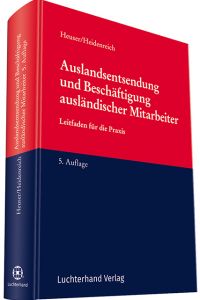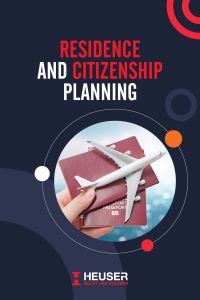3.1 Linguistic - cultural - country-specific preparation
The professional qualification of the expatriate is certainly often of decisive importance for his or her selection. Usually, the expatriate will not be able to speak the language of the future host country. In this case, intensive language preparation training with a carefully selected provider is of decisive importance not only for the employee, but also for the family members who will accompany him. Language shortcomings are the biggest barriers to a successful bridgehead in a new market. The training of foreign language skills should not, however, lead to the expectation of an ability to evaluate legal contract texts.
Intensive preparation is advisable and profitable
The cultural and country-specific preparation serves to deepen knowledge about foreign behaviour and climatic and other environmental requirements. A pure study of literature certainly does not fulfil the intended purpose. In recent years, management schools have crystallized here, which guarantee careful and intensive preparation for a particular country of activity. The opinion that the employee learns the language at the place of employment has not proved true. On the contrary, it has been shown that savings in language training lead to a reduction in work performance, especially during the familiarisation period.
In order to cope abroad, the employee should at least acquire basic knowledge of the national language before leaving the country. This applies in particular to the spouse, who is even more dependent on the foreign language without being integrated into the company and having native-language contacts with the head office. Before the employee takes up his or her position abroad, he or she should have good working knowledge of the national language. In each individual case it should be checked which written and oral expression level the employee needs for his task in order to convey it to him in advance through individual or group language courses.
On-site language and behavioural training
In the first months of the stay abroad, the employee and his or her spouse should deepen their knowledge in a local intensive course and gain more confidence in an accompanying conversation course. Expatriates need not only the ability to adapt, but also the ability to bring about change, understanding of their own and foreign culture and special behavioural training. They thus implement the requirement to supplement the previously primarily content-oriented continuing education programme with a so-called process-oriented part.
For the whole family: Intercultural Training
Intercultural training is not only important for employees who are preparing for a foreign assignment, but also for participants of international project groups and for those employees who are in constant contact with foreign countries. This training can generally contribute to improving cooperation, innovation and effectiveness within an international organisation. Preparatory seminars for assignments abroad can therefore also be part of a centrally controlled training concept for an extended target group. The training phases should also accompany the expatriate at the beginning of the foreign assignment, because in this way the questions arising from the confrontation with the new situation in the host country can be dealt with effectively. If the family accompanies the expatriate abroad, they should also be offered such training. The focus of the intercultural training should shift from the transfer of partial knowledge of the country to the demonstration of relationships in the host country. The participants of such a training should be made aware of how they think and act themselves. Only in this way can they recognise the differences and possible communication difficulties with foreign values, other mentalities and patterns of life.
Information on site
The visit of the expatriate and the accompanying family members in the future host country is of particularly great benefit, because it may also avoid bad investments. Some companies also offer "trial weeks" in advance for the employee and his or her family, and the decision is made only afterwards. The risk of early termination for family reasons can thus be partially reduced. This first visit should last between two and six weeks after careful preparation and coordination with possible contact persons abroad. In this way it is possible to experience both professional and private changes in the host country. The employee recognises the local, economic and legal framework of the new host state. They may already be familiar with the organisation of the subsidiaries, future employees, current problems and wishes of their superiors.
The quality of life is very important for the family!
In private terms, they have the opportunity to inquire about an apartment (housing complexes / equipment) as well as about the essential services. The family members have the possibility to ask questions about the admission of school-age children to a German or public school on the spot. Of great importance are certainly also the shopping possibilities, the local range of goods and the cost of living. For many Europeans, the cultural offer in the form of clubs, theatres and museums is of essential importance. Cultural events are often the only way to maintain contact with other expatriates. They are, of course, also the necessary information exchange. In the end, the local infrastructure is also of great importance. During this information stay in the host country, the employee, together with the family accompanying him or her, can see whether his or her ideas can be brought into line with the company's plans. This orientation phase is financially reasonable. If the family - due to the previous visit - can already move into an apartment at the beginning of the stay abroad, the company saves hotel costs and work absences during the first weeks in the country. This alone can pay for the information stay. It has been shown that it makes sense to provide the employee with a checklist to help him or her with his or her thoughts during the information stay.
3.2 Family preparation
Financial incentive to take the family with you
New findings in personnel management show that the support of the expatriate's family is very beneficial. Especially in the initial phase in the host country, the support provided by the family members is very helpful. There are a few companies that offer a financial incentive to encourage family members to come along. Accompaniment by school-age children usually causes unusually high school and boarding school costs by German standards.
In this context, the question arises as to who has to bear these costs and to what extent. It becomes particularly problematic when the host country is unable to provide a German-language school education. Then a separation is pre-programmed, which is a burden for all family members. Both the company and the employee should be prepared for the situation. In this case, a compensation through the assumption of travel costs to overcome the separation could be an appropriate solution. In order to ensure that the employee receives active support from his or her partner, a budget could be set aside for cultural and educational trips within the country. In this way, the country-specific characteristics can become a vital part of the stay abroad.
3.3 Preparatory checklists
1. information trip
a) Professional information
- Organization of the subsidiary,
- Future employees,
- Tasks,
- Current problems,
- Requests of the superior,
- Working documents.
b) Private
- Apartment, residential complex, equipment,
- Family, employment of the partner,
- Culture, clubs, sports facilities, school, beginning and end of school year, curricula,
Type of school leaving certificate,
- Move,
- Opening an account,
- Hotels. Official requirements, e.g. work and residence permit,
- official requirements, e.g. work and residence permit,
- On-site assistance: Homing Manager.
2nd departure checklist
a) Visa, work/residence permit, social security, passport,
international driving licence, vaccination certificate, health certificates, flight ticket.
b) Tropical examination, vaccination plan, visit to dentist or family doctor,
Travel or first-aid kit.
c) Cancel rental agreement, sell house / apartment / let,
Transferring road safety obligations, utility companies
information, securing electrical appliances.
d) Removal, storage, import restrictions, customs duties.
e) Deregister or re-register car, have no-claims bonus confirmed,
possible sale; import restrictions?
f) Regulate insurance, clarify tax issues, check standing orders,
Opening of a EURO foreign account.


